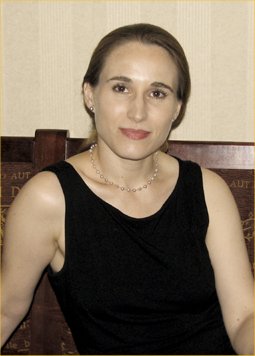Excerpts from the interview:
“As a fantasy writer, I see literature as a line between the two poles of realism and fantasy -- not as literary genres but as ways of perceiving the world. Writers have two impulses: to represent what we know as accurately as possible (the mimetic impulse) and to get away from that and be as imaginative as possible (the fantastic impulse). Since I was a child, I've always felt the fantastic impulse more strongly, but I think realistic representation is important, because that's how you make fantasy convincing.
“The uncanny is something you experience when you think you're living in a rational world and then something makes you think maybe the old superstitions are right -- maybe there are ghosts and vampires. So the rug of your understanding of the world is pulled out from under you, and that's when you shudder. I teach a course where we do vampire stories, from Lord Ruthven to Fritz Leiber's 'Girl With the Hungry Eyes' and Angela Carter's 'The Lady of the House of Love', and what I tell my students is, 'The shudder is the sign of the uncanny.'
“In a way, I write Gothic stories. They certainly have elements that are not comfortable or comforting, that are frightening, but I think there's something about them that's closer to fantasy than horror. There's one called 'The Belt' which I had a difficult time writing, because I think it's a really awful and disturbing story but I wanted to make the prose itself beautiful. So I took a lot of elements and techniques from fairytales. In my stories, there's a ground under your feet -- it may be a shifting ground, but it's still there.”
*
 “I write about relationships that are somehow vampiric, and (this sounds terrible) maybe it's because of a deep-seated belief that even the most wonderful relationships that we celebrate are vampiric. Spouses end up feeding off each other. I don't believe in perfect relationships between adults because those relationships are in some ways inherently selfish. Probably the relationship you have with your child is the least selfish; nevertheless, we all know that parents can be terribly selfish in their relationships with children.”
“I write about relationships that are somehow vampiric, and (this sounds terrible) maybe it's because of a deep-seated belief that even the most wonderful relationships that we celebrate are vampiric. Spouses end up feeding off each other. I don't believe in perfect relationships between adults because those relationships are in some ways inherently selfish. Probably the relationship you have with your child is the least selfish; nevertheless, we all know that parents can be terribly selfish in their relationships with children.”
*
“There are two ways of looking at the world. One is as a series of random events (which is more or less what science nowadays has given us), and the other is to believe there's some kind of underlying pattern or intentionality to it, even if we don't know exactly what that is. I think I have a real fear that the universe is random and meaningless, but at the same time a deep belief that there is a pattern even if I don't understand it. Miss Emily Gray is my expression of that intentionality. She's one of those beings who go around doing the things that need to be done. I don't think she's necessarily benevolent. She knows what she's doing, but we might not like what she does at any particular point.”
*
“As human beings, we do relationships and we do art, so I end up writing about relationships and art. The other thing we do that's as important is science, which is the process of understanding the world around us. I haven't written about that, really. I do have ideas for stories that one might classify as science fiction, except they would actually be about how little we understand the world around us despite how much we think we understand.”


